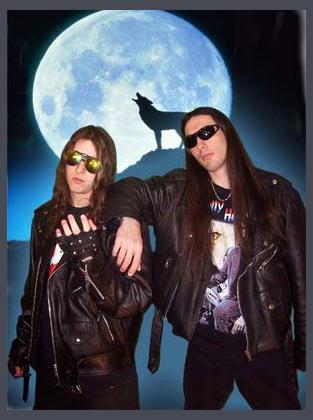 Ultra Vomit
Ultra Vomit
Ultra Vomit: The Profane and Controversial French Rock Band
Origins and Early Challenges:
Ultra Vomit emerged in 1999 as a quartet hailing from Nantes, France. Their irreverent and often vulgar lyrics immediately raised eyebrows, challenging the boundaries of musical expression. Despite their controversial nature, the band persevered through lineup changes and financial struggles, building a loyal following through live performances and underground releases.
Controversies and Censorship:
Ultra Vomit's unabashed profanity and provocative themes often stirred controversy. Their song "Kammthaar," a paean to pedophilia, sparked a public outcry and led to the cancellation of a concert. However, the band defiantly refused to censor themselves, arguing that their music was intended for a mature audience.
Musical Style and Influences:
Ultra Vomit's music is characterized by a blend of heavy metal, punk rock, and death metal elements. Their lyrics, delivered with a tongue-in-cheek style, often explore topics such as scatology, misogyny, and social taboos. The band cites influences from bands like Metallica, Slayer, and Twisted Sister.
Discography:
Over the years, Ultra Vomit has released numerous albums, including:
* Manier Crasse (2004)
* Objectif: Thunes (2006)
* Panzer Surprise! (2008)
* Fin du Monde (2010)
* Objectif: Thunes II (2012)
* Superflu (2015)
* Panzer Surprise! Volume II (2017)
* Attentat Rock'n'Roll (2019)
Members:
The current lineup of Ultra Vomit consists of:
* Fetus (vocals, guitar)
* Manard (guitar, vocals)
* Kayo (bass)
* Weewee (drums)
Impact and Legacy:
Ultra Vomit remains a polarizing force in the music world. While their music has been praised for its originality and humor, it has also been criticized for its offensive and misogynistic content. Nevertheless, the band has carved out a unique niche for themselves as a symbol of freedom of expression and the power of satire.
Origins and Early Challenges:
Ultra Vomit emerged in 1999 as a quartet hailing from Nantes, France. Their irreverent and often vulgar lyrics immediately raised eyebrows, challenging the boundaries of musical expression. Despite their controversial nature, the band persevered through lineup changes and financial struggles, building a loyal following through live performances and underground releases.
Controversies and Censorship:
Ultra Vomit's unabashed profanity and provocative themes often stirred controversy. Their song "Kammthaar," a paean to pedophilia, sparked a public outcry and led to the cancellation of a concert. However, the band defiantly refused to censor themselves, arguing that their music was intended for a mature audience.
Musical Style and Influences:
Ultra Vomit's music is characterized by a blend of heavy metal, punk rock, and death metal elements. Their lyrics, delivered with a tongue-in-cheek style, often explore topics such as scatology, misogyny, and social taboos. The band cites influences from bands like Metallica, Slayer, and Twisted Sister.
Discography:
Over the years, Ultra Vomit has released numerous albums, including:
* Manier Crasse (2004)
* Objectif: Thunes (2006)
* Panzer Surprise! (2008)
* Fin du Monde (2010)
* Objectif: Thunes II (2012)
* Superflu (2015)
* Panzer Surprise! Volume II (2017)
* Attentat Rock'n'Roll (2019)
Members:
The current lineup of Ultra Vomit consists of:
* Fetus (vocals, guitar)
* Manard (guitar, vocals)
* Kayo (bass)
* Weewee (drums)
Impact and Legacy:
Ultra Vomit remains a polarizing force in the music world. While their music has been praised for its originality and humor, it has also been criticized for its offensive and misogynistic content. Nevertheless, the band has carved out a unique niche for themselves as a symbol of freedom of expression and the power of satire.